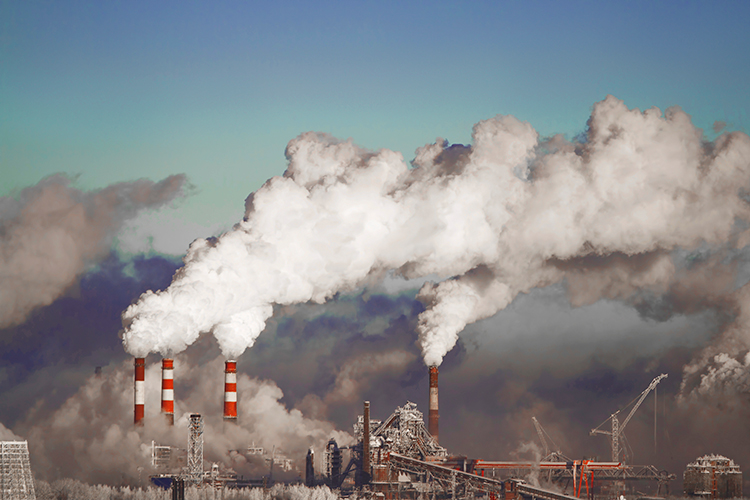
Germany has been known as a country with a strong commitment to environmental protection. However, recent data shows that air pollution in some of the major cities of Germany, including Berlin, Munich, Frankfurt, and Dusseldorf, has reached dangerous levels, exceeding the limits set by the World Health Organization (WHO).
As a result, German citizens have taken legal action against the federal government, accusing it of failing to take sufficient action against air pollution. The lawsuit filed by environmental organisations Deutsche Umwelthilfe and ClientEarth, representing seven German citizens, demands that the government implement measures to reduce pollution levels in the affected cities.
The State of Air Pollution in Germany
Germany’s air pollution levels are often similar to those of other European countries and the UK. However, new research suggests that even low levels of exposure to air pollution can have severe health consequences, including dementia and heart disease. Additionally, a recent report has revealed the alarming potential of certain pollutants to activate dormant lung cells and cause cancer.
The European Union’s top court ruled on June 3, 2021, that Germany persistently violated its air pollution rules for years. The case was initiated by the European Commission, which said in 2018 that Germany had failed to meet the EU limit for nitrogen dioxide and had exceeded the limit in 26 zones between 2010 and 2016.
The Significance
The lawsuit is significant for several reasons. Firstly, it marks a major shift in citizen activism on environmental issues. In the past, mainly environmental groups led the protests and legal actions against polluters. Now, citizens are taking matters into their own hands and suing the government for not protecting their health and doing nothing about the effects of diesel emissions on the environment.
Secondly, the lawsuit could significantly impact Germany’s reputation as a leader in environmental protection. The country has been praised for reducing greenhouse gas emissions and increasing renewable energy usage. However, the air pollution crisis has tarnished its image and could potentially lead to economic and political consequences.
Thirdly, the lawsuit could set a precedent for other countries to follow. As noted earlier, pollution is a global problem, and many countries struggle to meet their international obligations to reduce emissions. If citizens in other countries start suing their governments and holding them accountable for their actions, it could create a domino effect and lead to more governments taking the matter seriously.
The Role of Citizens in Combating Pollution
The legal actions being taken by citizens against the German government highlight the important role that individuals can play in advocating for environmental change. Through these lawsuits, citizens are working to hold their government accountable for its failure to address pollution. They are demanding that more decisive action be taken to protect the environment and public health.
Volker Becker-Battaglia resides in one of Germany’s most polluted streets in Munich. In an interview with BBC News, he emphasises the seriousness of air pollution, stating that although it may not be at the forefront of people’s minds, it is undeniably a silent killer.
The sheer volume of cars that pass by his house, approximately 150,000 per day, is a constant nightmare. In fact, he and his family feel the need to escape the city whenever possible due to the detrimental effects of the pollution.
In addition to legal action, other citizens are also taking other steps to combat pollution. For example, many are investing in electric vehicles or public transport, reducing their use of heating systems and power consumption, and advocating for local policies that promote sustainable living.
Filing a Diesel Emissions Claim
Another key area where citizens can take legal action is with diesel emissions. Diesel engines produce high levels of nitrogen oxide, a toxic gas linked to respiratory problems, heart disease, and other health issues. Despite this, many car manufacturers have continued producing diesel cars, claiming they meet emissions standards. However, as the 2015 Volkswagen emissions scandal showed, this was often not the case, with cars emitting far more pollutants than they were supposed to.
Filing a diesel emissions claim is one way for citizens to hold car manufacturers accountable for their actions. These claims argue that the car manufacturers misrepresented the emissions levels of their vehicles, thereby putting citizens at risk. If successful, the claims could result in compensation for those affected and force car manufacturers to take steps to reduce emissions in the future. Visit https://www.emissions.co.uk for more information.
The pollution issue is complex and pressing, requiring action from all sectors of society. While the government has a crucial role to play in regulation and enforcement, citizens too have an important role to play in holding those responsible to account. Whether they will be successful in their efforts remains to be seen, but one thing is clear—the fight against pollution is far from over.

Leave a Reply